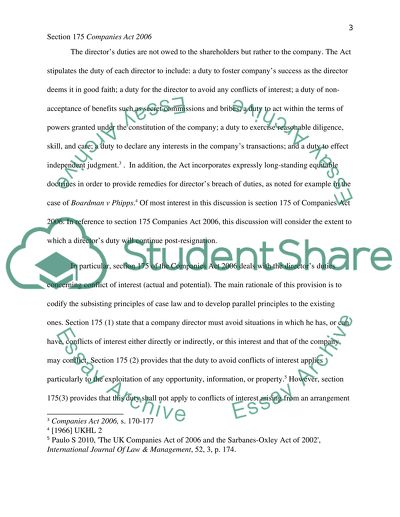Cite this document
(“To What Extent Does a Director's Duty Under Section 175 Companies Act Essay”, n.d.)
To What Extent Does a Director's Duty Under Section 175 Companies Act Essay. Retrieved from https://studentshare.org/law/1447786-to-what-extent-does-a-director-s-duty-under
To What Extent Does a Director's Duty Under Section 175 Companies Act Essay. Retrieved from https://studentshare.org/law/1447786-to-what-extent-does-a-director-s-duty-under
(To What Extent Does a Director'S Duty Under Section 175 Companies Act Essay)
To What Extent Does a Director'S Duty Under Section 175 Companies Act Essay. https://studentshare.org/law/1447786-to-what-extent-does-a-director-s-duty-under.
To What Extent Does a Director'S Duty Under Section 175 Companies Act Essay. https://studentshare.org/law/1447786-to-what-extent-does-a-director-s-duty-under.
“To What Extent Does a Director'S Duty Under Section 175 Companies Act Essay”, n.d. https://studentshare.org/law/1447786-to-what-extent-does-a-director-s-duty-under.


